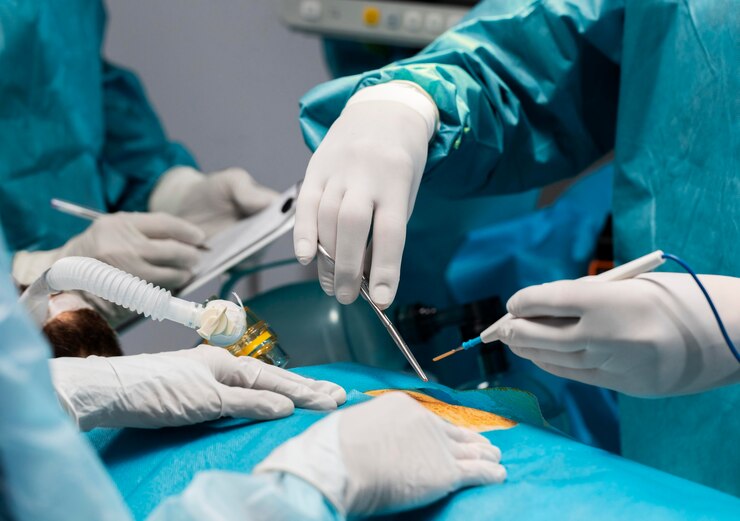Maintaining good liver health is crucial for our overall well-being, but sometimes, our liver can face serious challenges. In extreme cases, a liver transplant becomes necessary. So, if you are curious to know everything about liver transplants, this blog is meant for you.
In this blog, let’s get a complete understanding of who might need a liver transplant, the symptoms to watch out for, the causes behind liver issues, and precautions to maintain a healthy liver.
Who Needs a Liver Transplant?
Liver transplants are typically recommended for individuals with severe liver diseases or conditions that cannot be managed with other medical treatments. Some common reasons include:
Cirrhosis:
- Symptoms of Cirrhosis: Fatigue, weakness, swelling in the abdomen, and easy bruising.
- Causes of Cirrhosis: Long-term alcohol abuse, hepatitis B or C, and fatty liver disease.
Hepatitis:
- Symptoms of Hepatitis: Jaundice (yellowing of the skin and eyes), abdominal pain, and nausea.
- Causes of Hepatitis: Viral infections (hepatitis B or C), alcohol abuse, and autoimmune hepatitis.
Liver Cancer:
- Symptoms of Liver Cancer: Unexplained weight loss, abdominal pain, and changes in appetite.
- Causes of Liver Cancer: Prolonged liver disease, cirrhosis, and hepatitis.
Genetic Disorders:
- Symptoms of Genetic Disorders: Fatigue, abdominal pain, and issues with growth and development.
- Causes of Genetic Disorders: Genetic conditions like Wilson’s disease and hemochromatosis.
You should visit the best liver transplant surgeon in India if you experience these kinds of symptoms.
Symptoms of Liver Issues
It’s essential to be aware of the signs that your liver might be struggling. If you notice any of the following symptoms, it’s crucial to consult the best liver transplant surgeon in India to get the required treatment.
Jaundice:
Jaundice, recognized by the yellowing of the skin and eyes, indicates a struggle in the liver’s bilirubin processing. This yellow pigment buildup represents potential liver dysfunction, requiring prompt medical attention.
Abdominal Pain:
If your stomach hurts a lot all the time, it might mean your liver is having some trouble. When the liver gets bigger or inflamed, it can make your belly feel uncomfortable. It’s essential to go see a doctor if your stomach keeps hurting so they can find out what’s going on and help you feel better.
Swelling:
Swelling in the abdomen and legs, known as oedema, indicates fluid retention linked to liver dysfunction. The liver usually helps control the fluid in our body, but if it’s not making enough protein, things can get all swollen. It’s really important to tell a doctor about it quickly so they can figure out what’s wrong and help you feel better.
Fatigue:
If you feel really tired and weak for no reason, it might be because your liver is having some trouble. The liver helps give us energy, and if it’s not working well, you might feel tired all the time. If you’re always tired, it’s important to see a doctor so they can find out what’s happening and help you feel better.
Nausea and Vomiting:
Liver dysfunction can lead to constant nausea and vomiting arising from low bile production. If you are constantly experiencing these symptoms, consult with the best liver transplant surgeon in Delhi as soon as possible. They can figure out what’s going on with your liver and help you feel better.
Causes of Liver Issues
Understanding the root causes of liver problems can help in preventing them. Common factors include:
Alcohol Abuse:
Excessive and prolonged alcohol consumption can harm the liver, causing liver damage over time. The liver processes alcohol, and chronic abuse can lead to inflammation, fatty liver, and, ultimately, more severe conditions.
Viral Infections:
Hepatitis B and C, viral infections affecting the liver, can lead to inflammation and damage. These infections are often transmitted through contaminated blood or other body fluids, emphasizing the importance of preventive measures and vaccinations.
Obesity and Fatty Liver Disease:
Poor diet and a sedentary lifestyle contribute to the accumulation of fat in the liver, leading to non-alcoholic fatty liver disease (NAFLD). Obesity increases the risk, making lifestyle changes crucial in preventing and managing this common liver condition.
Genetic Factors:
Inherited conditions like hemochromatosis (excessive iron absorption) and Wilson’s disease (copper buildup) can build up liver problems. Recognizing and managing these genetic factors is essential for preventing and addressing potential liver issues.
Precautions for a Healthy Liver
Maintaining a healthy liver is in your control. Adopt these simple precautions to promote liver health:
Moderate Alcohol Consumption:
Limiting alcohol intake to moderate levels is crucial for a healthy liver. Excessive alcohol can strain the liver, leading to inflammation and potential long-term damage. Keeping alcohol consumption in check supports overall liver well-being.
Healthy Diet:
Adopting a balanced diet rich in fruits, vegetables, and whole grains is key to promoting liver health. A nutritious diet helps in maintaining a healthy weight and ensures the liver receives essential nutrients, reducing the risk of fatty liver disease and other complications.
Regular Exercise:
Staying physically active is vital in preventing obesity and supporting overall health, including liver function. Exercise helps regulate weight and improves blood flow to the liver, contributing to its optimal performance and reducing the risk of liver-related issues.
Vaccination:
Getting vaccinated for hepatitis B is a proactive measure against viral infections that can severely affect the liver. Hepatitis B vaccination provides a shield against this potentially harmful virus, emphasizing the importance of preventive healthcare for liver well-being.
Avoid Self-Medication:
Consulting with the best liver transplant surgeon in India before taking medications or supplements is crucial to safeguard the liver. Some substances may impact liver function, and professional advice ensures safe and appropriate usage, preventing unintended liver damage from self-medication.
Conclusion
Our liver plays a vital role in keeping us healthy, and it’s essential to pay attention to its well-being. Recognizing symptoms, understanding causes, and taking simple precautions can go a long way in maintaining a healthy liver. In severe cases, a liver transplant might be necessary, offering hope for those facing serious liver conditions.
So, if you are looking for the best liver transplant surgeon in Delhi, Dr Vivek Vij is here to help. With years of experience, he had done thousands of successful liver transplants to give a new lease of life to patients. Book an appointment now to know more.











